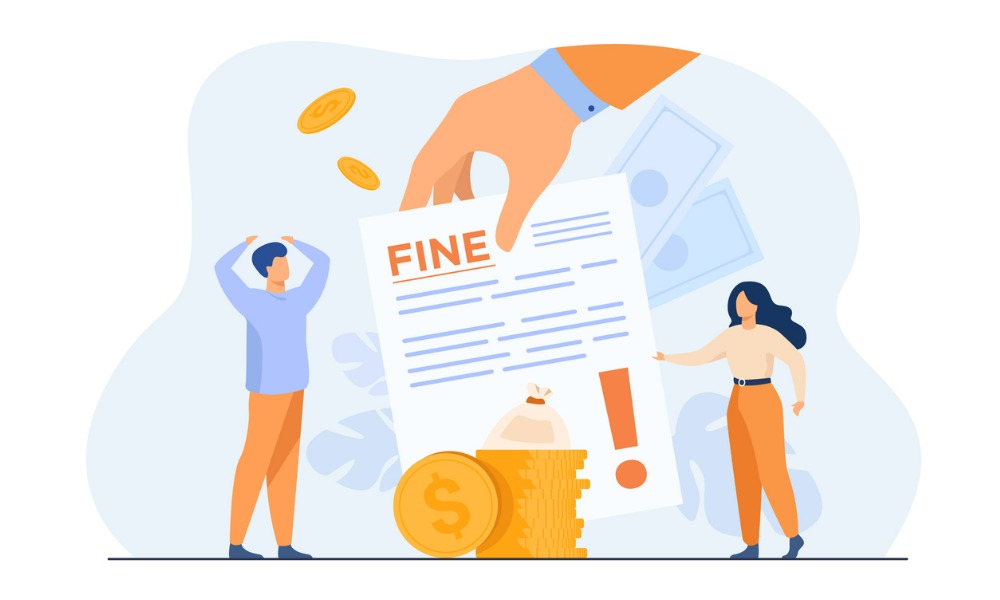
Employer groups speak out: 'Wrong measures at wrong time'

Employers across Australia are at risk of facing fines of up to $4 million in the government's proposed second tranche of workplace reforms, which business groups are ganging up to oppose.
In a recently released consultation paper on criminalising wage theft, the Department of Employment and Workplace Relations (DEWR) is proposing that maximum penalties for some workplace violations be "increased by five times."
For businesses, they could reach a new maximum penalty of up to $412,500, while serious contravention can lead up to $4,125,000.
For individuals, the proposed new maximum penalty is at $85,500, while serious violations could reach fines up to $825,000.
"This approach ensures that misconduct which directly enables, or disguises, an underpayment is able to be treated as seriously as the underpayment itself," the paper said.
Criminalising wage theft is just one of the proposed reforms introduced by the government - as it also released consultation papers in relation to labour hires and casual employees.
Under the Same Job, Same Pay measure, the DEWR is proposing that labour hire workers should be paid with at least the same amount provided to directly engaged staff who are doing the same work.
On the reforms related to casual workers, the government is proposing reforms that would "balance certainty and fairness for both employees and employers."
This includes the proposal of a framework that would grant employees the "choice to convert to permanent employment and provide employers who act in accordance with their legal obligations with certainty of employment status and the associated wages and conditions."
These are among the consultation papers released by the government this week, with feedback sought until May 12.
The reforms were greeted by criticism from employers, who urged the government to "deliver reforms that will actually achieve its stated goals."
"Good government isn't just about legislation for its own sake, what the government doesn't do also matters. A big part of this challenge is avoiding needless ideological changes that leave Australians worse off in the long term by being clear about the problems we're trying to solve and the most effective way to get there," said the Business Council of Australia in a statement.
On the matter of workforce casualisation, the BCA said it is concerned that the "case for change hasn't been made."
"In fact, the most recent estimates suggest the number of casual employees as a percentage of the workforce is going backwards," it said.
The council also called out the Same Job, Same Pay measure proposed by the government, stressing that the government's challenge is to ensure it wouldn't slow down productivity.
"Same Job, Same Pay would be detrimental to Australia's workplace relations system and contradictory to the government's stated policy aims of increased access to enterprise bargaining," the BCA said.
In its submission to the government, the BCA said it outlines the "key principles of reform" that can help deliver better jobs and higher wages.
"As global economic headwinds gather, Australia can't afford a tranche of reform that leaves our feet stuck in the cement of rigid and outdated workplace practices," the BCA said.
National employers' organisation Australian Industry Group (Ai Group) also backed the BCA saying the proposals were the "wrong measures at the wrong time."
"At a time when the economy is under increasing stress from rising costs, labour and skill shortages and increasing global uncertainty the last thing business needs is more regulation, more complexity and more rigidity," Ai Group CEO Innes Willox told the Australian Financial Review.
The Australian Chamber of Commerce and Industry also told the AFR that they were ensuring that "wage underpayment laws should not capture non-deliberate behaviour."
The Council of Small Business Organisations Australia also told the AFR that it was "very aligned with the BCA" against the labour hire laws.
Australia's second tranche of reforms come after passing the "Jobs and Skills Australia" bill last year.
Employers have since been calling for extensive consultations with the government before introducing a second set of workplace reforms.